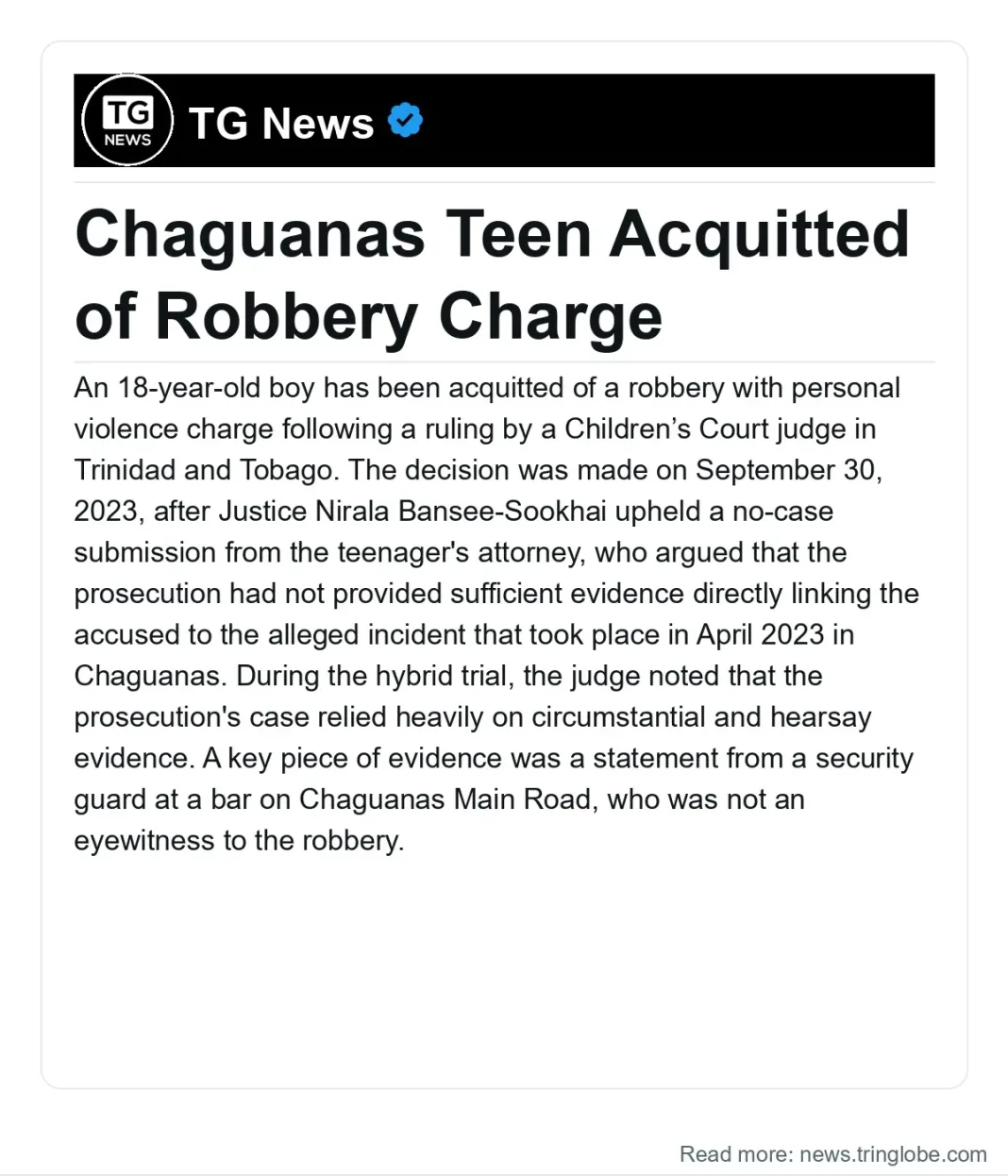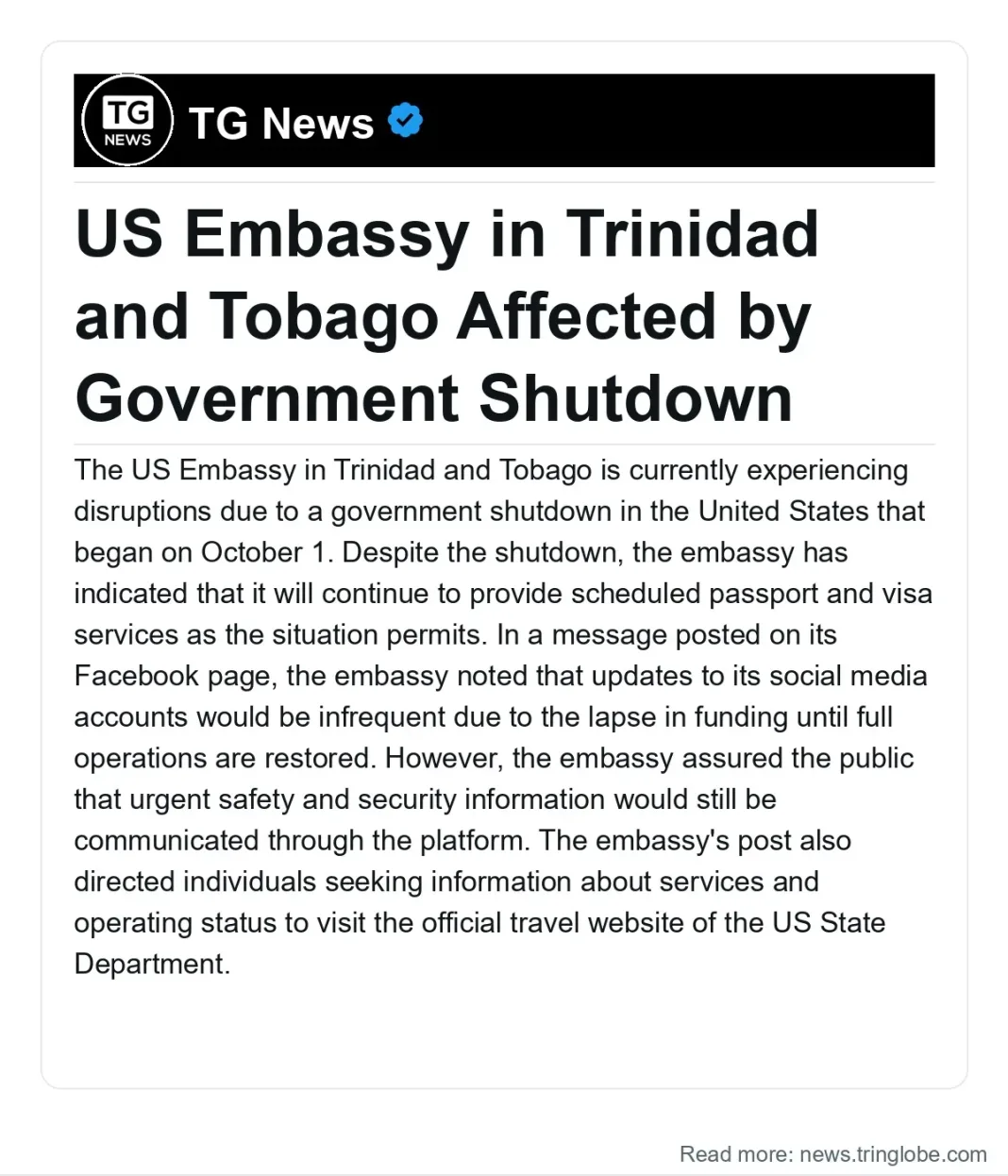This report covers trinidad tobago: chaguanas teen with key details and context.
This report covers trinidad tobago: chaguanas teen with key details and context.
An 18-year-old boy has been acquitted of a robbery with personal violence charge following a ruling by a Children’s Court judge in Trinidad and Tobago. The decision was made on September 30, 2023, after Justice Nirala Bansee-Sookhai upheld a no-case submission from the teenager’s attorney, who argued that the prosecution had not provided sufficient evidence directly linking the accused to the alleged incident that took place in April 2023 in Chaguanas.
During the hybrid trial, the judge noted that the prosecution’s case relied heavily on circumstantial and hearsay evidence. A key piece of evidence was a statement from a security guard at a bar on Chaguanas Main Road, who was not an eyewitness to the robbery. The alleged victim did not testify, as he is currently abroad, and his police statement was not accepted as evidence in court.
Justice Bansee-Sookhai pointed out several inconsistencies in the prosecution’s case, including discrepancies regarding the date, location, and details of the alleged robbery, which undermined its credibility. While there were claims that the victim was injured and robbed, no evidence was presented regarding the amount of money stolen. Additionally, witnesses provided conflicting accounts about the date of the robbery, with some stating it occurred on April 9 instead of April 4.
trinidad tobago: chaguanas teen: key developments so far.
The defense attorney, Bhimal Maharajh, highlighted that the security guard admitted during cross-examination that he had never interacted with the teenager before, despite his written statement suggesting otherwise. Concluding that the prosecution’s case was “manifestly weak and tenuous,” Justice Bansee-Sookhai dismissed the charge and ordered the teenager’s discharge.
The ruling has drawn attention to the standards of evidence required in criminal cases, particularly those involving young defendants. Legal experts have noted the importance of ensuring that all evidence presented in court is credible and reliable to uphold the integrity of the judicial process.
In Trinidad and Tobago, the legal system has specific provisions for handling cases involving minors, which aim to protect their rights while ensuring justice is served. The acquittal of the teenager may have implications for future cases, particularly in how evidence is gathered and presented in court.
As the legal community reflects on this case, discussions around the balance between prosecuting crime and safeguarding the rights of the accused continue to be a focal point. The outcome of this trial serves as a reminder of the complexities involved in criminal proceedings and the necessity for thorough investigations and substantiated claims.
Moving forward, it remains to be seen how this ruling will influence similar cases in the region and whether it will prompt any changes in the approach to evidence gathering and prosecution strategies.


